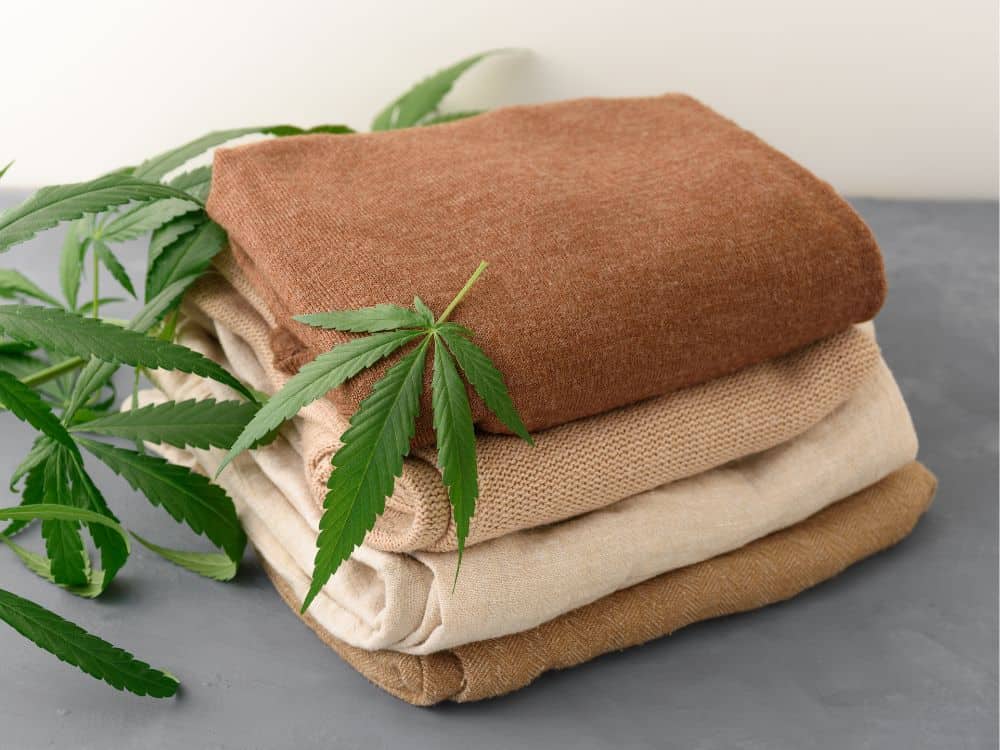New Advice To Picking Bamboo Clothes
Wiki Article
What Makes Hemp More Environmentally Sustainable Than Cotton Regarding Water Usage, Pesticides Or Herbicides?
Hemp is considered a sustainable crop if you compare it to cotton in terms of the use of water, pesticides and herbicides for several reasonswater Usage-
Hemp- Hemp is a plant with a very low water requirement compared to other crops like cotton. It is a drought-tolerant and low-irrigation plant. Hemp is often grown using rainwater in several areas. It's a great water-efficient plant.
Cotton- Conventional textiles are renowned for their high water consumption. Cotton farming often requires extensive irrigation. This can drain local resources and lead to water scarcity in regions with little water. Cotton farming has been criticized for its intensive use of water.
Pesticides, Herbicides
Hemp: Hemp has a natural defense against many pests. This reduces the requirement of synthetic pesticides. The use of chemicals in hemp is lower than other crops such as cotton. The cultivation of hemp organically is almost free of pesticides.
Cotton - The standard cotton farming industry is heavily dependent on synthetic insecticides and herbicides in order to manage pests. These chemicals could have adverse environmental impacts, including groundwater and soil contamination, harm to the other species and production of pesticide resistant insects.
Summary: hemp is considered to be an environmentally green plant than cotton with regard to water usage, pesticides and herbicides.
Hemp typically requires less water and can be grown with minimal watering or irrigation.
Hemp is resistant to a variety of insects, diseases and fungi. This means that it reduces the need of synthetic pesticides.
Hemp is usually grown using fewer pesticides and herbicides than traditional cotton.
It's also important to know that environmentally-friendly practices and sustainable farming methods can vary depending on the region and individual farmers. Organic methods of farming can further enhance the sustainability of hemp and cotton since they limit the use of synthetic chemicals and promote soil health. When considering the environmental impacts of textiles and clothing, making use of organic fibers like hemp or cotton can help reduce the fashion industry's ecological footprint. Take a look at the most popular hemp clothing hints for website recommendations including hemp trousers, hemp tees wholesale, 100 hemp t shirt, hemp baja hoodie, patagonia ranch jacket, hemp tees wholesale, hemp golf shirts, hemp fabric, hemp sportswear, hemp hoodie and more.

What Are The Practical And Technical Advantages Of Hemp Clothing Over Conventional Fibres?
Hemp clothing is a sustainable alternative that provides many functional and technical advantages over traditional fibers. Hemp clothing offers several advantages which make it an ideal green and high-performance alternative.
Hemp fibers are extremely air-tight and moisture-wicking, which makes hemp clothing comfortable under a variety of conditions. They help to wick away water, which keeps the wearer cool and dry during hot weather.
Temperature Regulation
Hemp clothing is extremely thermoregulatory properties. It keeps you warm during cold temperatures by trapping heat close to your body. In hot temperatures, it can help you remain cool by allowing humidity and heat to go away. The natural way to regulate temperature can reduce the need for frequent changes in clothing.
Durability and longevity-
Hemp fibers are known as being tough. Hemp clothing tends to be more robust and resistant to wear and tear compared to some traditional fibers like cotton. This makes hemp garments can last longer, reducing the frequency of replacements, and consequently less environmental impact.
UV Protection
Hemp fibers offer natural UV protection, shielding the skin from harmful UV radiation. This is especially beneficial for outdoor activities.
Biodegradability:
Hemp clothing biodegrades over time, which means it breaks down when it is disposed of. This feature reduces pollution caused by textiles as synthetic fibers are suitable for landfills to remain.
Low Environmental Impact
Hemp cultivation requires less synthetic pesticides compared to cotton. Additionally, it uses less water, making it a greener choice. The organic hemp farming process further improves the eco-friendly qualities.
Carbon Sequestration
Hemp plants can absorb carbon dioxide during their growth. Hemp cultivation acts as a carbon dioxide sink which reduces greenhouse gas emissions.
Sustainable Crop Rotation
Hemp can easily be integrated into crop rotation systems to enhance the overall health of the soil. It also lowers the possibility of soil depletion or disease accumulation. This sustainable farming technique can help reduce environmental impacts.
Versatility:
Hemp fibers can be blended with other materials, such as organic cotton or recycled polyester to create high-performance and eco-friendly blends of fabrics. This flexibility makes it possible to create innovative and sustainable textiles.
Low Toxicity
Hemp fibres are not high in toxicity by nature, and don't require chemical processing. They can reduce the environmental impact associated with production of textiles.
Apart from hemp's numerous functional and eco-friendly benefits, it's important to keep in mind that sustainability of clothes can be affected by other elements like dyeing techniques, transportation, or ethical working practices. To help consumers make sustainable choices, they should seek out clothing brands which prioritize the environment, transparent manufacturing and ethical practices. Follow the most popular hemp clothing for site info including hemp jacket, hemp shorts patagonia, patagonia hemp overalls, patagonia ranch jacket, hemp yoga pants, women's all seasons hemp canvas bomber hoody jacket, hemp sweatpants, hemp t shirt mens, women's all seasons hemp canvas bomber hoody jacket, hemp fabric and more.

What Are The Benefits Of Wearing Bamboo Clothing To Ensure Environmental And Comfort.
Bamboo clothing can be eco-friendly and comfortable.
Bamboo fabric is known for their exceptional softness. It has a silky smooth texture that feels comfortable against your skin. Bamboo clothing is well-known for its luxurious softness, which makes it an ideal option for activewear, loungewear and intimate clothes.
Breathability - Bamboo fibers are naturally moisture-wicking and breathable. The micro-gaps in the fabric allow air to circulate which keeps you comfortable and cool in hot weather. The moisture-wicking qualities help to remove sweat from your body, decreasing dampness.
Bamboo clothing has excellent properties for thermoregulation. It helps keep you warm during cooler temperatures by capturing heat close to the body. It can also help keep you cool in hot temperatures by allowing excess moisture and heat to go away. This adaptability to different temperatures makes bamboo clothing suitable for year-round clothing.
Hypoallergenic Bamboo fabric is hypoallergenic and gentle for sensitive skin. Bamboo fabric is less likely than other fabrics to cause allergic reactions or irritation, so it's a good choice for those who have allergic skin or sensitive skin.
Odor resistance Bamboo fibers possess natural antimicrobial properties that can help inhibit the growth of odor-causing bacteria. This helps bamboo clothing keep fresh and clean after exercise.
Environment-
Sustainability- Bamboo is a renewable and sustainable resource. It is among the fastest-growing species worldwide and requires a minimum amount of water as well as no herbicides or pesticides for cultivation. Bamboo can grow from the roots, making it possible to harvest without harming the plant.
Low water usage- Bamboo is inherently water-efficient. Bamboo can withstand the rigors of a small amount of water and grow using only rainwater.
Biodegradability - Bamboo clothing breaks down naturally after a period of time, even before it is removed from the landfill. This reduces the amount of non-biodegradable textile waste in landfills.
Carbon Sequestration - Bamboo plants are able to capture CO2 from the air during the rapid expansion. Bamboo farming is a great way to reduce greenhouse gas emissions and act as a carbon source.
Chemical Reduction- The manufacturing and processing of bamboo fabrics typically require less chemicals than other textiles. This reduces the impact on the environment that textile manufacturing has.
Closed-Loop Manufacturing- Certain manufacturing methods for bamboo fabrics utilize closed loop production that recycles and reuses water as well as chemicals to reduce the waste and environmental impact.
Be aware that the impact of your actions on the environment on bamboo clothing will vary depending on whether it is made from sustainable and ethically managed bamboo forests. To get the most environmental impact, customers should look for bamboo clothing made with eco-friendly and ethical methods. Follow the most popular bamboo clothing for site examples including bamboo t shirts womens, bamboo clothing leggings, bamboo onesies, freefly summer hoodies, bamboo yoga pants, bamboo pants, bamboo yoga trousers, bamboo cotton shirts, bamboo twirl dress, bamboo twirl dress and more.
